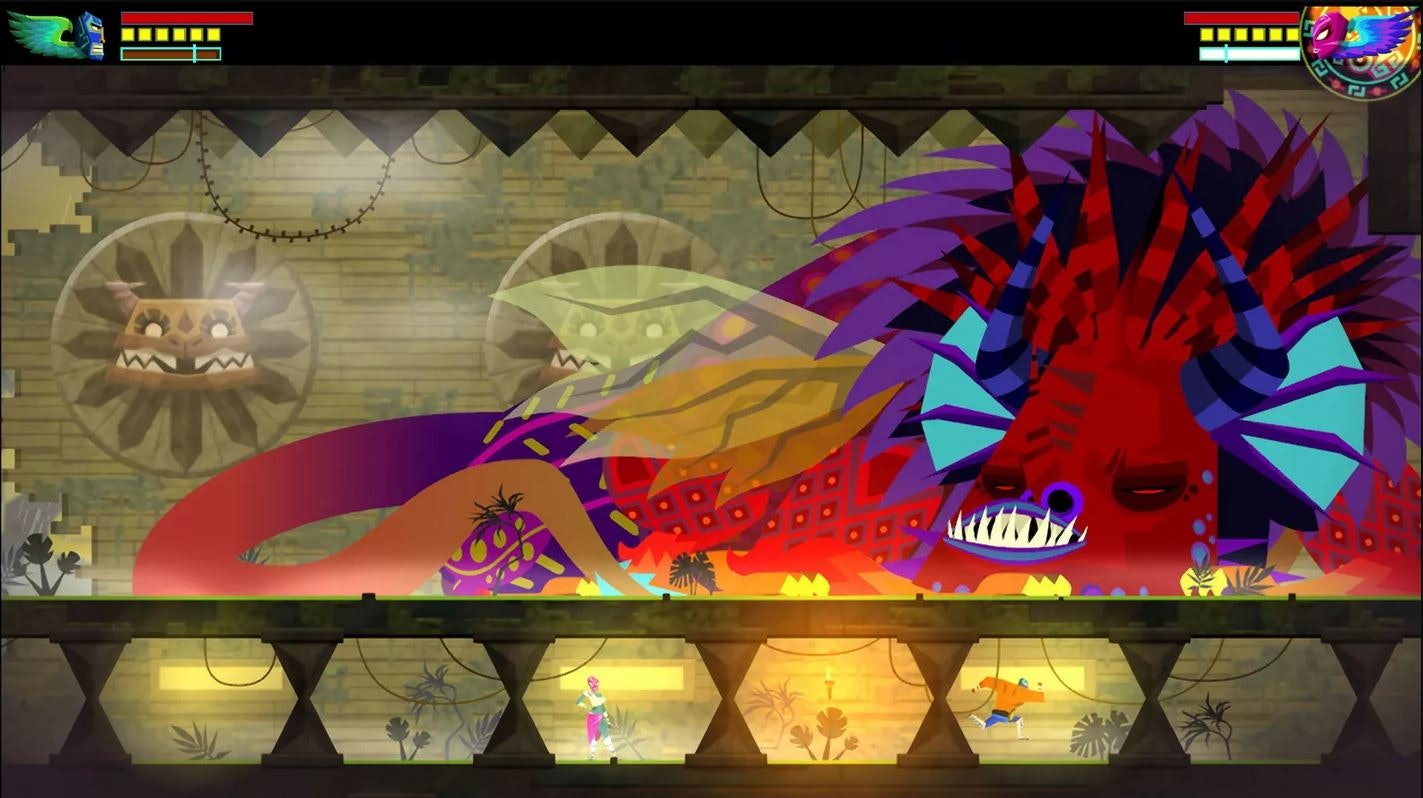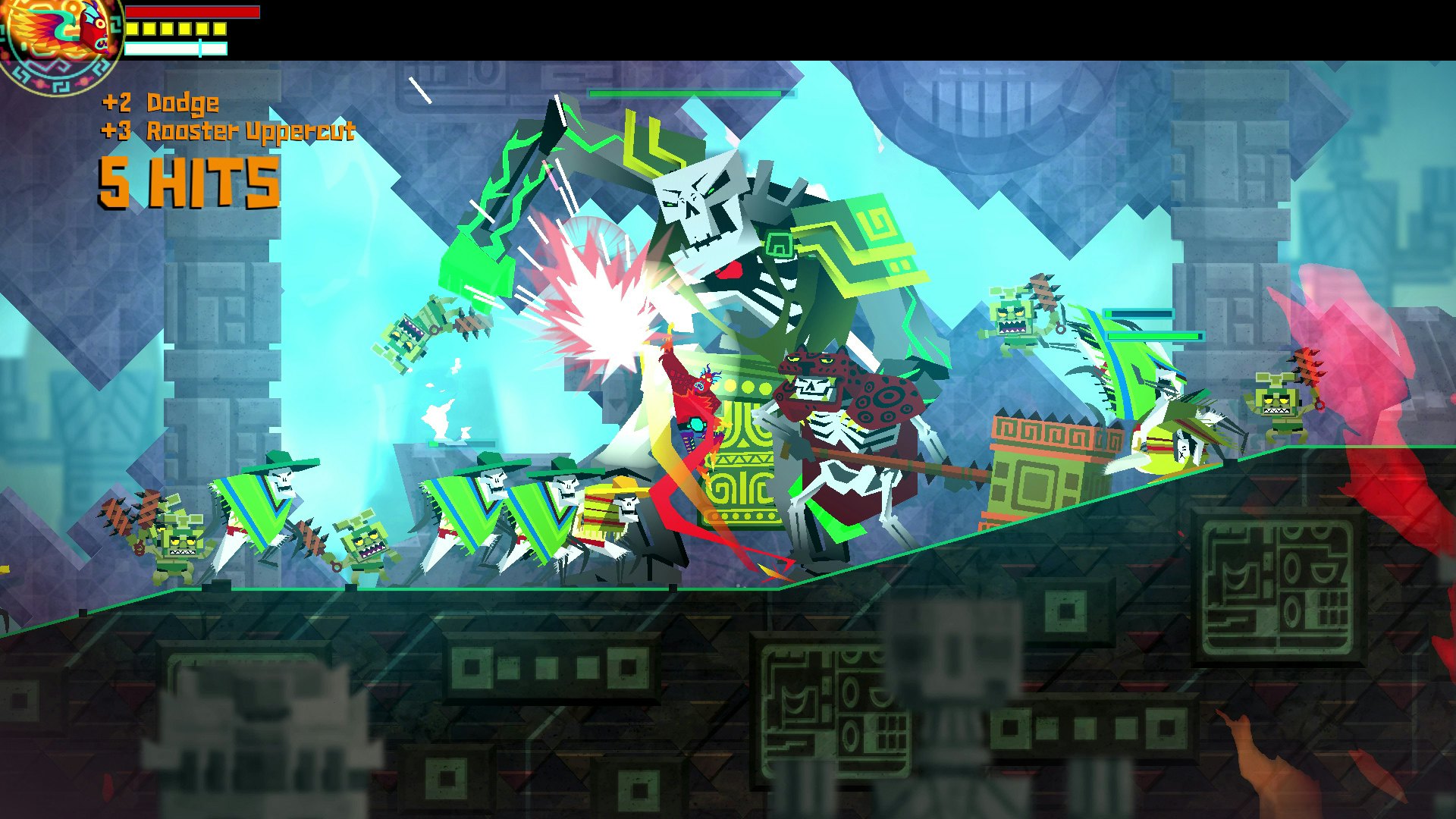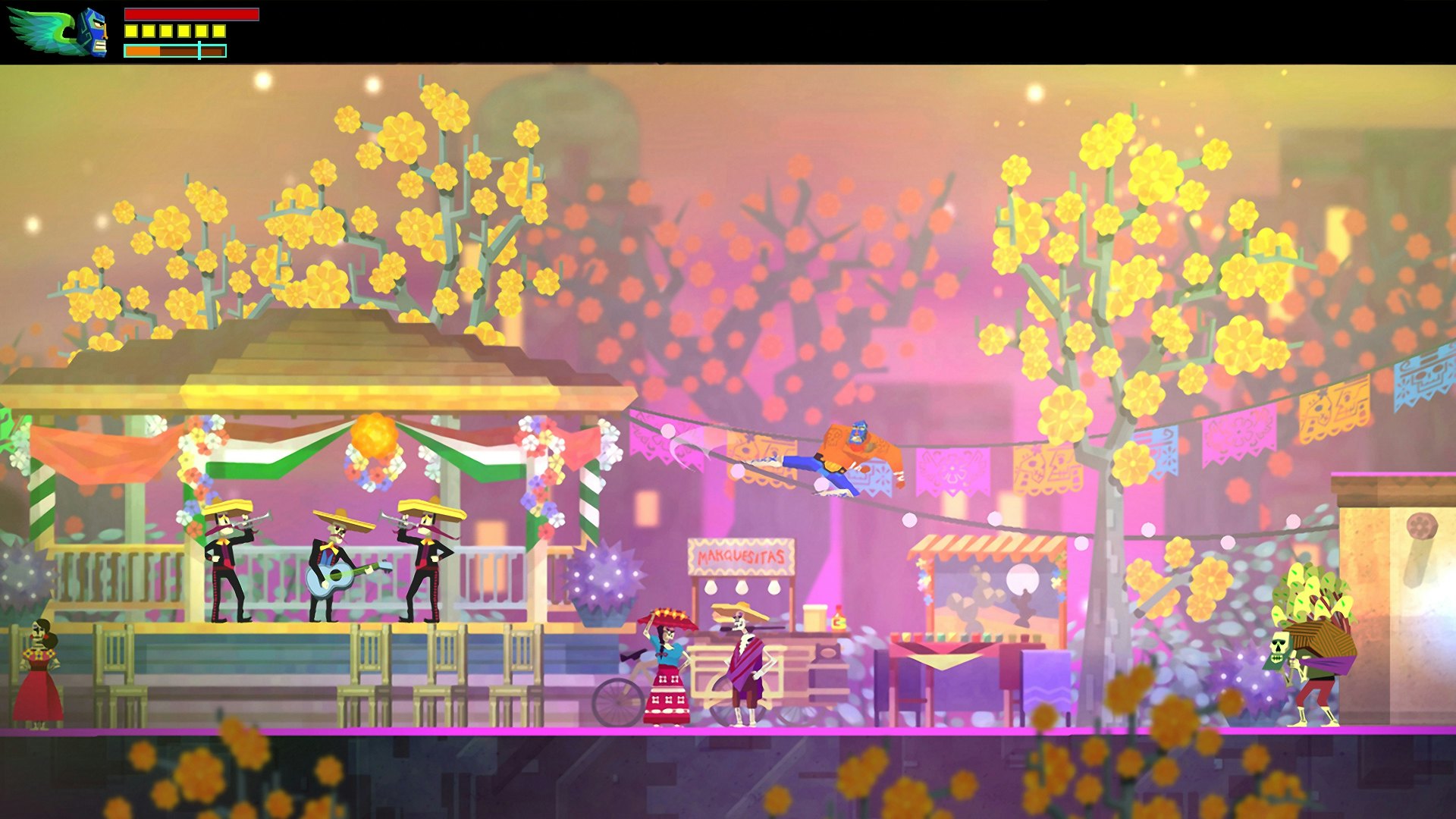
Death, like taxes and memes, is a certainty. Every culture has something to say about death and what comes after. Perhaps no culture has a better aesthetic for death than Mexico’s legendary Día de los Muertos aka The Day of the Dead. You’ve likely at least seen the stylized skulls (calaveras) adorning masks and candies, the parade scene from Spectre which inspired a real-life parade in Mexico City, or the movie Coco. Traditionally, it involves private altars, small offerings and stories about the deceased.
Three thousand years of rich cultural history notwithstanding, let’s not lose sight of what’s really important: video games.
Guacamelee launched in 2013 to near-universal praise. Developer Drinkbox Studios looked to Dia de los Muertes as the setting for its Orpheus-by-way-of-Santa Luchita tale featuring supernatural luchador Juan Aguacate navigating the underworld to rescue his beloved Lupita, kidnapped by a vengeful charro skeleton name Carlos. The spirit of Dia de Los Muertes goes beyond the fourth wall, too, with remembrances to classic video games Easter-egged throughout this Metroidvania.
Guacamelee marries this vibrant, celebratory, and self-aware tone with some of the best beat-‘em-up mechanics this side of River City. Juan is a luchador after all, and these legendary masked Mexican pro wrestlers are renowned for their strength and courage. He isn’t afraid to fight, or afraid to learn. The magic of Guacamelee lies in its perfectly balanced skill tree, which feeds you game-changing moves at game-changing moments. Like any good Metroidvania you do a fair amount of backtracking, hunting for new paths forwards and unlocking secrets as you go.
The fights in Guacamelee are not full of mindless meat bags or random button mashing. Combos are important, which teaches you to be careful with your timing. As the game progresses enemies will sport color-coded shields indicating which special attack you need to lead with to break the box. It’s a subtle visual cue and a great tactic for keeping mob fights interesting when multiple enemies all require a different approach.

There’s more to this series than fighting though. What would a Metroidvania be without some interesting traversal mechanics? And Guacamelee does not disappoint. The driving force in exploration is Juan’s ability to switch between the land of the living and the land of the dead. This ultimately boils down to puzzles where obstacles that exist in one world don’t exist in the other, and you often have to switch back and forth with precise timing to perform a wall climb or land a long jump.
You can also turn into a chicken! Think of this as a sort of avian morph ball that lets Juan explore tiny passages his hulking frame couldn’t normally squeeze into. Like all things in Guacamelee this goes beyond mere gimmickry, and there are some challenging segments requiring you to be the best chicken you can be in order to progress through the game.

All of these great mechanics are supported by a game world that is second to none. Few games come as close to absolutely nailing their world-building as Guacamelee does. The characters (living and dead versions) deliver legitimately hilarious dialogue, and there’s just enough story to keep you engaged without depriving you of the fisticuffs and level design that makes the game a treat to play. You’ll marvel at the scenery and design (especially at the end of Spooky Season) and the mariachi-meets-acid-rock psychadelia of the soundtrack never disappoints.
All this to say you need to play Guacamelee (or its sequel Guacamelee 2) ASAP.
Both games are available on Xbox, PlayStation, Switch and PC. Guacamelee 2 is available on Xbox Game Pass, too.







